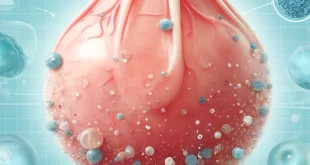Key Information
Salary: starting from £38,607 – £39,372 per annum
The full salary range for the grade is £38,607 – £45,224. Starting salary dependent on relevant postdoctoral experience. Future progression is based on annual performance review., future progression is based on annual performance review. If the candidate has not yet been awarded their PhD, the starting salary will be at £32,844 until the successful completion of their viva.
Duration of Contract: Fixed Term for 3 years
Hours per week: 35 hours per week (Full Time)
Job Details
You will work as part of a team of inter-disciplinary data scientists who are experts in analysis of next generation sequencing data, machine learning and software development and therefore offering unique learning opportunities. Prior experience in biological science is desirable but not a perquisite for the position. The work will include application of existing tools as well as development of statistical methods using in-house and publicly available datasets such as the 100,000 Genomes Project.
Key Requirements
The successful candidate must have strong analytical skills to perform integrated analysis and visualisation of complex multi-omic data. You will have opportunities to create/optimise computational pipelines and develop new analytical methods. You will work closely with experimental biologists and it is essential to be able to communicate your findings effectively.
Applicants should hold a higher degree in mathematics/statistics/physics/computer science or a related discipline and have experience in programming and scripting.
The successful applicant will enjoy working as part of a multidisciplinary team interacting with internal and external collaborators. The appointee will excel in coordinating and exploring the medical research areas through exploiting these collaborations and be a highly motivated fast learner.
Department/Directorate Information:
The Division of Genetics and Epidemiology is internationally renowned for its pioneering work in understanding the underlying genetic causes of cancer risk. High-quality laboratory, epidemiological and clinical research within the division is driven by energetic, innovative leadership and complemented by participation in national and international research consortiums, clinical collaborations and technological partnerships.
The focus of the Cancer Genomics Team is the identification and characterisation of genetic changes influencing the development of cancer. We are a multidisciplinary team of researchers from diverse backgrounds, including mathematics, physics and molecular biology who are collectively engaged in a number of collaborative projects, nationally and internationally.
We encourage all applicants to access the job pack attached for more detailed information regarding this role. For an informal discussion regarding the role, please contact Richard Houlston via email on Richard.Houlston@icr.ac.uk
About The Institute of Cancer Research
As a member of staff, you’ll have exclusive access to a range of staff benefits.
The Institute of Cancer Research, London, is one of the world’s most influential cancer research institutes, with an outstanding record of achievement dating back more than 100 years. Further information about working at the ICR can be found here.
 medjouel.com Study Non Stop
medjouel.com Study Non Stop



